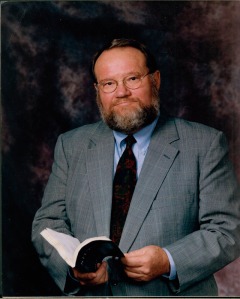Renia’s Diary: A Holocaust Journal, by Renia Spiegel, with Elisabeth Bellak and Sarah Durand. Translated from Polish by Anna Blasiak and Marta Dziurosz. Introduction by Deborah E. Lipstadt. St. Martin’s Press. 336 pages. Hardcover $27.99.
This book, a diary never meant for publication, is not what one would expect from something labeled as a Holocaust diary or journal. In it, young Renia gives very little attention to the immediate effects of Nazi aggression on a Jewish community. Most often, she seems barely aware of it. Perhaps it’s fairer to say that she is only intermittently aware of the establishment of a Ghetto near her grandparents’ home, where she has been living since being separated from her parents. She hears rumors that over time solidify. 
Most of her impressions of ongoing or expected destruction of Jewish communities seem second hand, and perhaps they most often were second hand – until the end.
Readers will wonder why they are not getting the kind of scenes that make up the bulk of first person Holocaust writings.
Deborah E. Lipstadt’s Introduction helps clarify the issue by making the important distinction between diary and memoir. Diary writers are writing for themselves or for an alter ego. The diary is a companion (“dear diary”). Such journals are about the happenings and concerns of the immediate present.
Memoirs are retrospective. The writer knows the outcome of events initiated in the past and has processed the experiences after the immediate has become the remembered. Memoirs are meant to have an audience and they are written in anticipation of that audience.
Renia spent her time writing her observations, her primary concerns as a teenage girl in the last years of her well-designed secular schooling. Boys and possible relationships are on her mind, as are her female peers in the school. She writes about her moods, whom she likes, and whom she thinks does and does not understand her.

Foremost here is the student who becomes her committed boyfriend, Zygmunt. Her word portraits of this young man are astonishing, as are her records of their meetings and conversations. Parties, dances, and other standard teen activities are on Renia’s mind, as is her sense of how she is maturing physically, intellectually, and emotionally. Like most diary writers, she is talking to herself, addressing the diary directly as if it were a sympathetic friend: a true and loyal confidante.
The diary also records her concern about her mother’s situation, her longing for her mother to visit, and her high esteem for her absent mother. Many entries end with the author’s cry for help from her mother and from God. She needs them both desperately.
Renia’s diary is also, perhaps primarily, a collection of her poems, both recent and brand new. Her writerly aspirations drive her to produce more and more poems.in which she skillfully employs nature imagery to help explore her emotional life. The poems fall short of greatness, especially in that they are so repetitive of one another, but Renia is clearly a promising poet whose work could have grown in depth and sophistication if her life had not been cut short.
Meanwhile, she was trusted to run her school’s student newspaper.
While the last passages that Renia wrote do focus on the conditions of ghetto life, a fuller picture of that period and the family’s life before and after can be found in two additional sections of the book prepared by Renia’s younger sister. They are not journal material but a mix of memoir and research. Titled “Epilogue” and “Elizabeth’s Commentary,” These sections provide much-needed context that is otherwise missing from the journal proper. With these additions, the answers to questions that are not answered in journals or diaries like Renia’s are brought fully to light. It is here that readers receive the conditions of Holocaust life in Poland.
RENIA SPIEGEL was born to a Jewish family in Poland in 1924. She began her diary at the start of 1939, right before the invasion of Poland by the German and Soviet armies. In 1942, she was forced to move to a ghetto, but was smuggled out by her boyfriend and went into hiding with his parents. She was discovered by the Gestapo and murdered on July 30, 1942.
ELIZABETH BELLAK (née Ariana Spiegel), Renia’s sister, born in 1930, was a child actress once called “the Polish Shirley Temple.” In 1942 she and her mother fled to Warsaw, and then to Austria, finally arriving in New York City, where she lives today.
This review appears in the August 2019 issues of L’Chayim (Jewish Federation of Lee and Charlotte Counties) and The Jewish News (Jewish Federation of Sarasota-Manatee)








